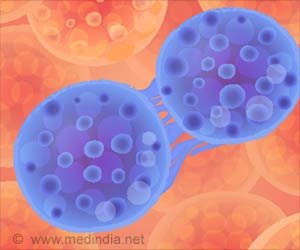Breast Cancer Protein That Could Predict Chemotherapy Sensitivity Identified

Boosting the levels of p53 protein variant, breast cancer cells were unresponsive to existing treatments.
Breast Cancer: New Findings
“The primary reason women die from breast cancer is treatment resistance,” said HMRI and University of Newcastle PhD researcher Luiza Steffens-Reinhardt.
“A breast cancer that is resistant to treatment is impossible to cure. Therefore, there is an urgent need to improve therapies that target the cells responsible for resisting these therapies.”
Associate Professor Kelly Avery-Kiejda, who supervises Steffens-Reinhardt on her research, says, this research could be a first step in better targeting breast cancer treatment.
“One in eight women in Australia develop breast cancer and while there is a 92 percent survival rate, this doesn’t take into account secondary cancers or metastasis, which are essentially incurable,” said Associate Professor Avery-Kiejda.
Advertisement
“If we can identify biomarkers that predict how well a patient will respond to certain therapies, we can then target the available therapies more effectively.”
The findings were published in a paper titled ‘Alterations in the p53 isoform ratio govern breast cancer cell fate in response to DNA damage’ in the Cell Death & Disease journal.
This paper is the culmination of investigative work that Associate Professor Avery-Kiejda started in 2009.
This research builds on foundation research that was conducted with the generous support of the Cancer Institute NSW and the Estate of the late Joy Heather Granger.
HMRI is a partnership between the University of Newcastle, Hunter New England Health and the community.
Source: Eurekalert
Source link
#Breast #Cancer #Protein #Predict #Chemotherapy #Sensitivity #Identified



